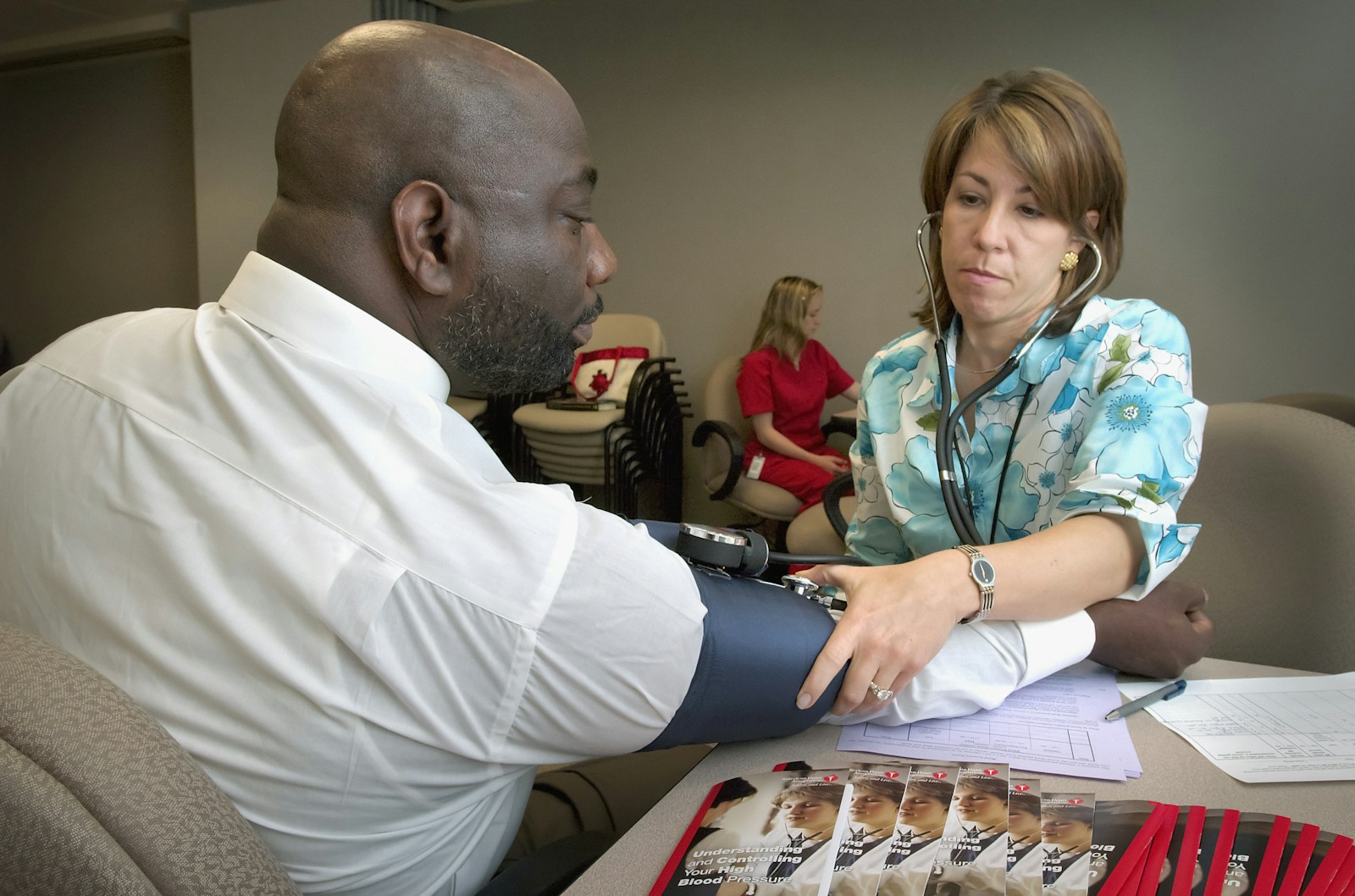Medications are used by a lot of people to regulate their high blood pressure, however for other people, those medications are not effective.
One month ago, Baylor Scott & White Heart and Vascular Hospital in Dallas started employing a procedure that was just recently approved by the FDA and is intended to treat hypertension that is resistant to treatment.
Sam Baker of KERA shared his thoughts on renal denervation with Dr. Robert Stoler, an interventional cardiologist who carried out the first surgery of its kind in the state of Texas during the month of December.
During the clinical experiment that was conducted at BSW-Dallas to investigate the effectiveness of the renal denervation system, Stoler served as the primary investigator.
The process of renal denervation is described.
In certain patients who have hypertension that is resistant to treatment, the renal nerves that feed the kidneys produce or exude an excessive amount of adrenaline or epinephrine, which is a chemical that, in effect, causes our blood pressure to rise.
Using a catheter, which is a thin tube, we are able to run it up from the leg or the femoral artery, and then we are able to direct it into the renal arteries, which are the arteries that supply the kidneys. In addition, we are able to drive through the renal arteries and make use of these catheters in order to access a source of energy. In one type, ultrasonography is utilized. The other makes use of energy that is radiofrequency. Additionally, we are able to make use of those forms of energy in order to change, burn, or degrade the renal nerves.
And when we modify those nerves by employing this energy, their capacity to release chemicals like adrenaline or epinephrine and other compounds into our bloodstream, which can cause an increase in blood pressure, is eliminated.
Are you able to get rid of your excessive blood pressure using renal denervation?
High blood pressure cannot be cured with the use of renal denervation. Regarding the treatment of high blood pressure, it is one of the weapons in the arsenal.
Patients who have had renal denervation have a drop in their blood pressure of approximately ten points on the top number of the systolic number over the first year following the procedure. Furthermore, the further we are removed from the surgery, the greater the fall in blood pressure that we experience.
That being said, one of the goals may be to bring the blood pressure under control in individuals who have hypertension that is resistant to treatment and who are on many drugs. An additional objective is to lessen the amount of drugs that the patient is taking in order to maintain control of their blood pressure.
You are still required to take medications, and you are still required to engage in the kind of lifestyle control that is routine?
Exactly, you are correct. Furthermore, the majority of patients who are at least at this point of renal denervation experience, as well as the majority of patients who are going to have renal denervation, are going to have high blood pressure and be taking several drugs.
It is anticipated that there will be trials in the near future in which we will examine individuals who are using fewer and fewer medications in order to determine whether or not we are able to, quote-unquote, cure their hypertension or get them off of all medications after a single treatment.
An examination of the data is going to take place at some point in the future. However, the initial phase of employing renal denervation as a treatment for hypertension that cannot be controlled while taking numerous drugs is going to be the first stage of therapy.
To what extent would this be considered a last-ditch effort?
Instead, I believe that it is going to become more and more commonplace in the near future. Some studies have found that as much as half of the population suffers from hypertension, and a significant number of those individuals do not have their blood pressure under control.
Consequently, there are a great number of patients who, rather than taking a multitude of medications that keep increasing in number, would prefer to undergo a surgery that, with any luck, would bring their blood pressure under much better control. This would be preferable to the practice of increasing the number of medications that they take in the distant future. Therefore, I believe that as news spreads, we are going to see this become more and more accessible to the general public.
This specific technique appears to be quite pricey. Are renal denervation treatments covered by insurance?
Presently, the firms who manufacture the devices are in the process of negotiating with Medicare and other payers in order to obtain payment for the therapy. On the other hand, we are currently in a quite precarious state of waiting. We, the physicians and our hypertension clinic, typically end up having to communicate with the payers in order to convince them to pay for this medicine. However, this is a situation that varies from case to case. In the end, renal denervation is going to be covered by all of the insurance companies who are currently in effect. As far as I can tell, that is still a work in progress.





